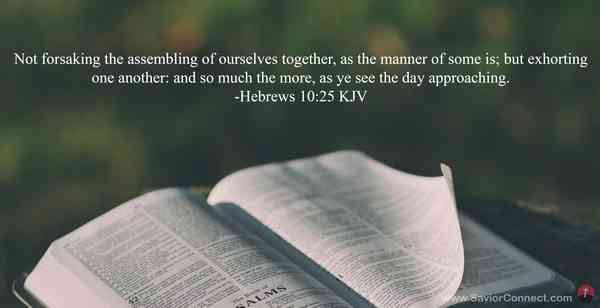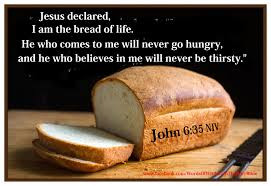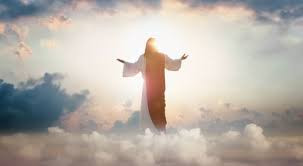
A Nazirite is a person who decides to separate himself from other people for a period of time to dedicate all his time to the Lord for that period of time.
sundayword BY PROSPER TINGINI
He surrenders himself to the full worship and servitude of the Lord. In so doing, he is seeking to create a stronger bond between himself and the Lord our God. He thus brings to himself a divine presence. Due to the closeness with God, a holiness is brought upon him.
This is similar to what Jesus Christ periodically did according to the scriptures of the New Testament. There is a reference to it in the book of Luke, chapter 4 verses 1-2, which reads; “Jesus, full of the Holy Spirit, returned from the Jordan (where He had been baptized by John the Prophet), and was led by the Spirit for forty days in the wilderness, and was tempted by the devil. And he ate nothing in those days and when they were ended, he was hungry”. It is the person who is separating himself to the Lord and shutting himself away from worldly things for a period of time who is referred to as a Nazirite.
Sometimes it can be done as a group of people. Again, taking the example of Jesus Christ, in Matthew 17 verse 1-4 and Mark 9 verse 2-4, it says; “After six days Jesus took with him Peter and James and John his brother, and led them up a high mountain apart. And he was transfigured before them, and his face shone like the sun, and his garment became white as light. And behold, there appeared to them Moses and Elijah, talking with him”. Therefore, this practice can be organised as a group of people separating themselves to the Lord. It helps to generate a closer bonding with God.
It is for that reason that the Lord our God saw it necessary to put in place guidelines to be followed by a Nazirite. Some bad habits of people could defile this coming together between God and the people, hence He wants to prevent such things. In the fourth book of Moses, Numbers 6 verses 1-12, He set a number of basic rules to be followed by anyone who separates himself to be close to the Lord. He commanded, “Say to the people, when either a man or a woman makes a special vow, the vow of a Nazirite, to separate himself to the Lord, he shall separate himself from wine and strong drink; he shall drink no vinegar made from wine or strong drink and shall not drink any juice of grapes or eat grapes, fresh or dried. All the days of his separation he shall eat nothing that is produced by the grapevine, not even the seeds or the skins”. Most alcoholic beverages then were made from grapes. God had already prohibited priests from drinking any alcoholic liquor before entering any holy places. He extends this same rule to those who separate themselves to give worship to the Lord. Anything that is a source of alcohol is therefore prohibited, from eating or drinking any of it.
He also proceeded to say, “All the days of his vow of separation, no razor shall come upon his head; until the time is completed for which he separates himself to the Lord he shall be holy; he shall let the locks of hair of his head grow long”. At baptism, water is used by either dipping the head into water or pouring water to the head. Even on anointment, oil is also applied to the head. The head signifies the person and any holiness is thus brought upon the head. As such, the Lord prohibits cutting the hair off the head since the holiness is also upon the hair, as part of the head. The hair should also be let loose so that it can freely grow itself.
He proceeded to say, “All the days he separates himself to the Lord he shall not go near a dead body. Neither for his father nor for his mother, nor for brother or sister, if they die, he shall not make himself unclean; because his separation to God is upon his head. All the days of his separation he is holy to the Lord”. Dead bodies are all unclean to the Lord; by reason of having lost the life in them. A Nazirite should not touch or come near to a dead body since these are unholy to the Lord. A Nazirite is defiled by any contact with a dead body.
- Chamisa under fire over US$120K donation
- Mavhunga puts DeMbare into Chibuku quarterfinals
- Pension funds bet on Cabora Bassa oilfields
- Councils defy govt fire tender directive
Keep Reading
If any person, on separation to the Lord, is defiled through contact with a dead body, then the Lord proceeds to say of such a person, “If any man dies very suddenly beside him, and he defiles his consecrated head, then he shall shave his head on the day of his cleansing; on the seventh day he shall shave it. On the eighth day he shall bring two turtle doves or two young pigeons to the priest to the door of the tent of meeting and the priest shall offer one for a sin offering and the other for a burnt offering, and make atonement for him, because he sinned by reason of the dead body. And he shall consecrate his head that same day, and separate himself to the Lord for the days of his separation, and bring a male lamb a year old for a guilt offering; but the former time shall be void, because his separation was defiled”. God has fully explained everything in detail. Once defiled, a Nazirite has to restart his/her days of separation to the Lord.
In Numbers 6 verse 13-21, God speaks on what a Nazirite should do after he has completed his days of separation to the Lord. He proceeded to say, “This is the law for the Nazirite, when the time of separation has been completed: he shall be brought to the tent of meeting, and he shall offer his gift of the Lord, one male lamb a year old without blemish for a burnt offering, and one ewe lamb a year old without blemish as a sin offering, and one ram without blemish as a peace offering and a basket of unleavened bread, cakes of fine flour mixed with oil, and unleavened wafers spread with oil, and their cereal offering and their drink offerings. The priest shall present them before the Lord and offer his sin offering and his burnt offering, and he shall offer the ram as a sacrifice of peace offering to the Lord, with the basket of the unleavened bread; the priest shall offer also its cereal offering and its drink offering. And the Nazirite shall shave his consecrated head at the door of the tent of meeting, and shall take the hair from his consecrated head and put it on the fire which is under the sacrifice of the peace offering. And the priest shall take the shoulder of the ram, when it is boiled, and one unleavened cake out of the basket, and one unleavened wafer and shall put them upon the hands of the Nazirite, after he has shaven the hair of his consecration, and the priest shall wave them for a wave offering before the Lord; they are a holy portion for the priest together with the breast that is waved and the thigh that is offered; and after that the Nazirite may drink wine”.
The Lord our God then concluded by saying; “This is the law for the Nazirite who takes a vow. His offering to the Lord shall be according to his vow as a Nazirite, apart from what else he can afford; in accordance with the vow he takes, so he shall do according to the law for his separation as a Nazirite”. Due to the changing times, offering could be made according to one’s ability and according to the mode of wealth in the given society. Livestock was the measure of wealth during those times, hence the mention of animals as an offering in most instances.
Prosper Tingini is a religious writer. He compiled a book titled, God’s Constitution For Mankind: The laws and commandments. His contact details are: 0771 260 195 or email: [email protected]











